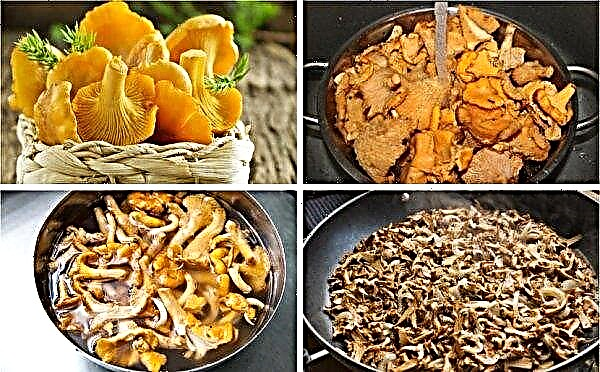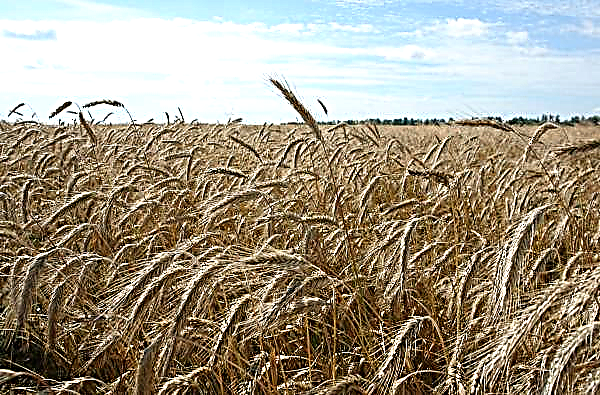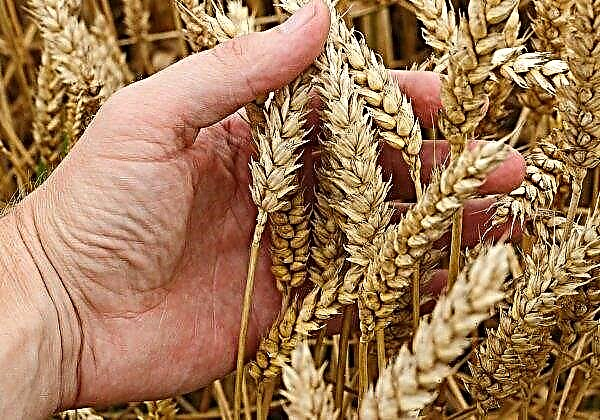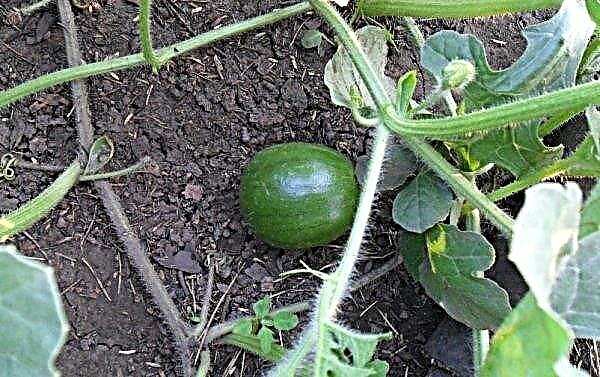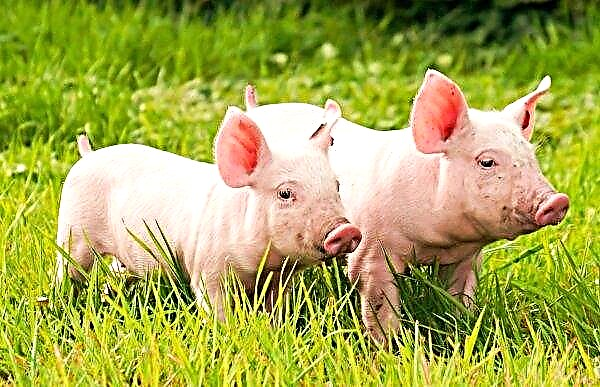More and more often, disputes flare up around the effect of gluten-containing products on the human body. In today's article, we will examine in more detail this component, its benefits and harms, as well as whether it is part of corn.
What is gluten free?
Gluten (gluten) - a vegetable protein that is part of cereal crops. He became known to mankind in 1728, it was then that he was isolated by Italian chemist Jacopo Bartolomeo Beccari from flour. In its pure form, it is a powdery substance without smell, taste and color, but when reacted with water it turns into a viscous substance, it is thanks to this property that the dough is obtained.

In addition to cereals and their derivatives, gluten is part of a third of all existing products, including ice cream, sausages, various sauces, chocolate, yogurt, etc.
Did you know? Gluten helps control appetite: it is part of complex carbohydrates, which are digested longer, thereby maintaining a feeling of satiety.
Most gluten in the following products (values are indicated in% by weight of grain):
- wheat - 80;
- semolina - 50;
- barley and pearl barley - 23;
- rye - 16;
- pasta - 11;
- bakery products - from 7 to 80.

Is gluten beneficial or harmful to the human body?
It is believed that the body does not need this protein, because, basically, it replenishes its protein reserves due to meat and legumes. At the same time, it promotes the absorption of vitamins B and D, as well as magnesium and iron. Gluten stimulates the development of beneficial microflora in the digestive tract, acting as a natural probiotic.
The substance is contraindicated to people who suffer from its individual intolerance. In medicine, this phenomenon is known as celiac disease, which is characterized by a violation of the intestines and a decrease in general immunity.
 Celiac disease (celiac enteropathy) is a disease characterized by chronic inflammation of the small intestinal mucosa, accompanied by malabsorption and resulting from gluten intolerance.
Celiac disease (celiac enteropathy) is a disease characterized by chronic inflammation of the small intestinal mucosa, accompanied by malabsorption and resulting from gluten intolerance.
Everything is explained by the fact that the body perceives the protein as a substance of foreign origin and fights with it, while striking the walls of the small intestine. This leads to disruption of the absorption of nutrients and, as a result, digestive upset occurs.
Gluten Intolerance
Genetically determined, as well as individual intolerance to gluten was found in 1% of the world's population.
Important! Untimely measures taken to identify gluten intolerance, as well as its exclusion from the diet, lead to impaired thyroid function and fragility of bone tissue.
How to determine gluten intolerance
Celiac disease is inherited genetically, so the likelihood of its manifestation in a person who has people suffering from a similar disease in the family increases from 0.8% to 4.5%. Moreover, it makes itself felt after the influence of stressful factors, for example, viral infections, pregnancy or operations.
To determine the predisposition to celiac disease, in the laboratory, a blood test is performed for the presence of specific antibodies, as well as a biopsy of the affected area of the intestine.
Symptoms of Gluten Intolerance
Symptoms of intolerance are quite nonspecific and characterize a fairly wide range of ailments.
 Celiac disease in children usually begins to appear at 9-18 months. In adults, the symptoms are less acute.
Celiac disease in children usually begins to appear at 9-18 months. In adults, the symptoms are less acute.
These include:
- pain in the abdomen;
- bloating;
- stomach upset.
Did you know? Foods high in vitamin C will help relieve inflammation of the intestinal mucosa caused by gluten when it is intolerant.
Substance in Corn
Corn is a crop that does not include gluten.
In more detail the nutritional value of the product is indicated in the table:
| Index | Value, in 100 g |
| Water | 76 g |
| Squirrels | 3.2 g |
| Fats | 1.2 g |
| Carbohydrates | 16.3 g |
| Cellulose | 2.7 g |
| Ash | 0.6 g |
| Calorie content | 86 kcal |

In addition, corn is rich in vitamins, micro and macro elements, and also belongs to the champions in the content of boron and iron.
Gluten Free Diet: Pros and Cons
The basis of this technique is the complete rejection of products containing gluten. When forming a diet, it is important to consider whether the products contain gluten.
The following products are suitable for this power supply:
- eggs, dairy products, meat and fish;
- animal and vegetable fats;
- vegetables, fruits, nuts;
- legumes;
- cereals (rice, corn, buckwheat).

- This nutritional scheme has a positive effect on the state of health, through:
- normalization of intestinal microflora;
- cleansing the body of toxins;
- decrease in gas formation in the digestive tract.
But it should be borne in mind that gluten promotes the absorption of a number of useful substances. Therefore, when forming a diet, it is necessary to pay special attention to vitamin nutrition, especially the presence of B vitamins, iron, calcium and dietary fiber.
Video: Gluten-free diet / What foods can I eat?
Summing up, we can conclude that gluten is dangerous only for those people who have a genetic or individual intolerance to the component.
Important! Excessive consumption of gluten can cause both a sharp set, and a decrease in body weight.
Timely, laboratory blood tests, as well as the rejection of products containing gluten, will help completely eliminate the discomfort caused by this substance. And thanks to a wide range of gluten-free products, including corn, diet food will be not only varied, but also as useful as possible.

